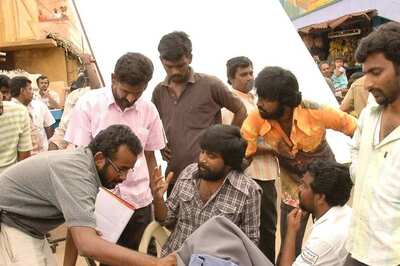
views
Capital goods industry has witnessed a dramatic slowdown in recent times due to the inability of the local manufacturers to meet the growing demand, while the Chinese equipment is relatively inexpensive and readily available.
The Chinese equipment makers, much like other exporters from China, also benefit from the low interest rates and an undervalued currency to boost exports.
Amidst the backdrop of the ongoing capacity expansions, the Indian power equipment manufacturers have been demanding imposition of customs duty to ensure a level playing field, while the IPP developers have been lobbying for cheaper imports.
Capital goods sector was also expecting high worth orders from steel segment leading to an increase in its backlog since the steel sector is planning to increase capital expenditure on plants.
Huge mismatch in demand and supply of power sector would claim for setting up more power plans, a positive trigger for capital goods.
The BTG capacities in India have been increasing significantly during the last year post the expansions undertaken by BHEL and Larsen & Toubro. In addition, companies like BGR Energy, Thermax and Bharat Forge are also in the midst of setting up new facilities for manufacturing power equipment.
However, the budget turned out to be a dampner for the capital goods space as most of its expectations were not met.
Here's what the sector was expecting this budget:
Exemption of anti dumping & safeguard duties on import of machinery under EPCG Scheme
Rationale: Anti-dumping duty is not payable to export inputs imported under the Advance Authorization Scheme. Both Schemes are Export Promotion Schemes and imposing export obligations as per provisions of the Foreign Trade Policy.
Expectations: Not expected as will hinder the demand for the domestic goods.
Impact: Positive for the industry.
Imposing Anti-Dumping Duty on the Capital Goods under EPCG makes the scheme unviable.
Basic Customs Duty exemption on Capital Goods for Power Plants
Rationale: Customs Duty exemption will contribute towards reduction in the cost of power generation which will help our economy at large besides encouraging more industries to come forward to set up power plants.
To give the CENVAT credit in the first year rather than giving 50 per cent in the current year and 50 per cent in the following year.
Rationale: The rationale for allowing full credit on these services was that they are general in nature and are required for routine business operations and that it is difficult to estimate the proportion of these services used for taxable and exempt streams.



















Comments
0 comment